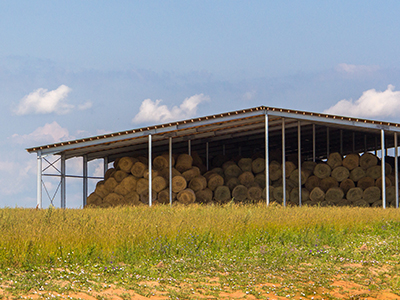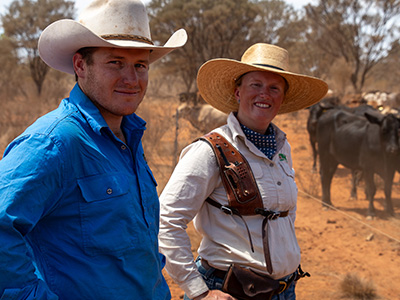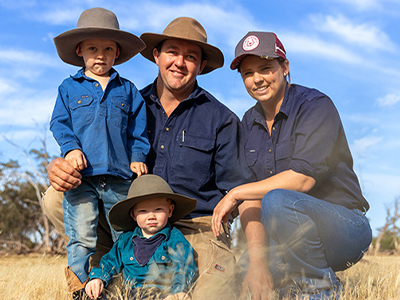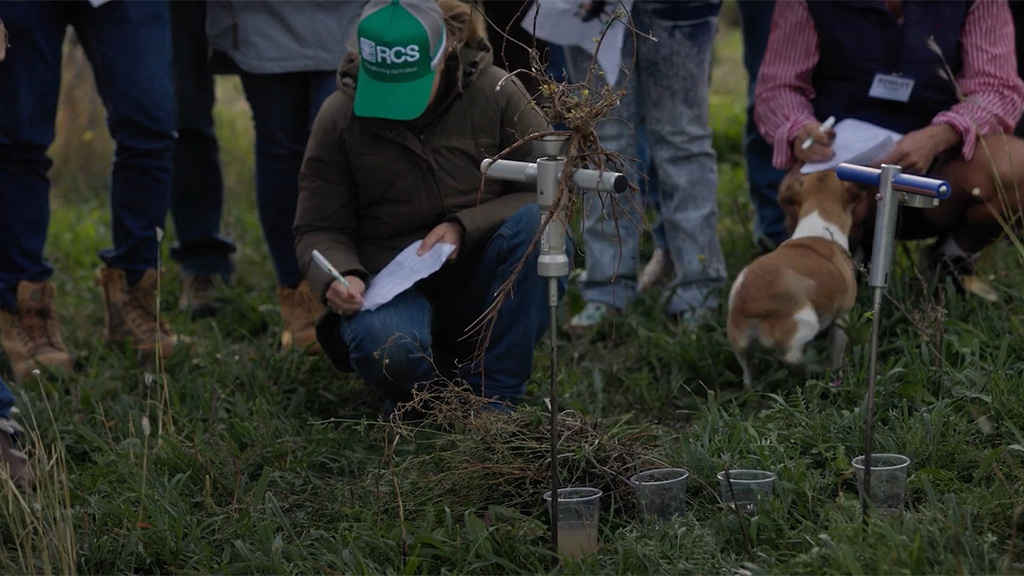There has been a lot of coverage recently in the Agricultural Industry on Sustainable Agriculture and the environment. But really, many people have been participating in sustainable practices on their properties for years! Why do you think it’s essential to get the message across now?
It is really important, now more than ever, to get our side of the story across about our practices as beef producers to the community. In recent years there has been such negativity placed on Agriculture as an industry, with many organisations stipulating how we must run our operations.
I feel we are being unfairly scrutinised by industry and consumer bodies who are putting strong pressure on us to give them an environmentally conscious, sustainable, safe product. We are lucky in Australia because beef producers produce an economical, high-quality product that is an important part of our daily food requirements.
Because our family is committed to our industry and the sustainable use of our type of land, we continue to produce this important product within the limitations of our environment, even in the face of severe and lengthy droughts, devastating floods and roller-coasting markets!
Our family has produced beef on our Roma property for four generations. We have been primary producers in the region for five generations starting with the production of grapes at Roma for the Romavilla Winery in 1864. Each generation has adopted the best practices of the day, and today, we have improved the land’s beef cattle productivity to enable successful production into the future. Our children hope to take on the family business so another generation will live and work on the property. I think that is the best measure of sustainability.
Is it more of an external communication activity to people outside the agricultural industry to change the image of agriculture, or is it an effort to promote sustainable agriculture within the industry?
It’s more internally focused as I don’t know how people out of the Agricultural industry would have real access to it. It is not promoted outside of agriculture, being in agriculture-focused papers, magazines, and on the MLA website.
Is there currently enough being done within the Agricultural Industry in terms of awareness and education to ascertain sustainable agriculture?
I think we as people and as an industry are slowly changing with the times and with technology. There are still some oldies who have yet to embrace technology or changes. However, the newer, younger generation is really into it, and can access more information to improve their properties. I think we are all changing because we must stay profitable and protect and develop our land and operations for future generations.
Government subsidies for education in agriculture at the moment really help, as people can further their knowledge without high costs.
What initiatives would you like to see in the Agricultural Industry?
With all the focus on sustainability, I would love to see the sustainable alliance put out guidelines so that we can label ourselves sustainable. This would also be a selling point for our product.
Encouraging people to move and live in rural communities would be another great way for people to be in touch with their primary food producers. I see this as being a key area for Government to encourage industry and jobs in rural areas and for families to live and work in regional communities and bring people back to their country roots. That way, people form an understanding of how things work within agriculture.
There is a need for the Government to encourage industry and workforce and government departments to take root outside the city centres into regional Australia to re-create the link between the consumer and the producer. People have genuinely forgotten where their food comes from, and we really need to do something to remind them.
Are you worried about the industry’s future, or do you think we have already started moving towards a better future?
I don’t think the beef industry is in danger anytime soon. The global economic climate is the biggest influence in the beef industry today, rather than sustainability, as many people believe.
In the future, beef will continue to be an essential product for the world and an important source of protein. The wealthier the developing nations become, the more beef they will add to their diet.
I’m confident that beef consumption in Australia will continue to be an important part of most people’s diets. I also support the widely accepted dietary advice from medical circles that lean red meat should be eaten 3-4 times a week as part of a balanced diet.
A little while back, you started an initiative called Target 100—what was the inspiration behind that?
We were embracing the talk of sustainability in the media and trying to share the message that we were doing the right thing. By doing the right thing, I mean being sustainable in our practices, looking after the environment, and meeting the balance between productivity and sustainability.
Target 100 allowed us to get our name and story out there. Where we live, there are mining companies with big marketing budgets constantly telling us how much they have done for the community. We don’t have that budget, so we need to be innovative and use social media to communicate our message.









